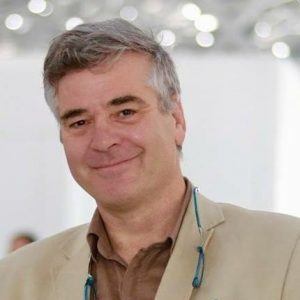
Robert Parthesius
New York University Abu Dhabi
Biography
Robert Parthesius obtained his PhD from the University of Amsterdam. He is Associate Professor in Museum and Heritage Studies at NYUAD and director of ‘Dhakira’ – Center for Heritage Studies at New York University Abu Dhabi (NYUAD). He is chairman of the Center for International Heritage Activities, and Associate Professor Archaeology at the Leiden University in The Netherlands. From his studies and work at the University of Amsterdam he developed an interest in interdisciplinary research on the crossroad of history, archaeology and anthropology. Initially working as curator of the Amsterdam Museum and lecturer at the University of Amsterdam he developed a track record of research projects and museum exhibitions in Europe, Asia and Australia. Significant projects include the experimental reconstruction of the VOC ship Batavia in the Netherlands (1985-1995) and the excavation of the Dutch East-Indiaman Avondster in Galle, Sri Lanka (1997-2007). He has curated international exhibitions on cultural exchange between Europe and Asia in the Australia, Japan, Sri Lanka and Amsterdam. During his work in Sri Lanka Robert Parthesius developed an interest in heritage studies and the complex relationship between local communities, indigenous knowledge and the understanding of heritage. In 2006 he was appointed as director of the CIE–Centre for international Heritage Activities and associate professor at the University of Leiden, The Netherlands. This institutional base allowed him to further his ideas on alternative heritage management models in our globalizing world. Programs in Afghanistan and sub-Saharan Africa in cooperation with local partners allowed him to bring theory into practice.
He has organized research and field schools for NYUAD on World Heritage Sites connected through historical Arabian Trade Routes. He has organized at NYUAD the international conferences ‘The Unpredictable Past’ (2014) and ‘Connected Through Heritage’(2015) and is co-organizer of ‘Dialogues with the Past’ (2016) and Scientific Research for Cultural Heritage (2017).
「 The “Unpredictable Past(s)“ of UNESCO World Heritage Sites 」
Since the founding of the UNESCO World Heritage Program in 1972, many ancient port cities have been nominated as World Heritage Sites for their Outstanding and Universal Value for humankind. Although many have trade and cultural exchanges histories that date back centuries, they are often primarily nominated for their role in the early modern period, placing them in a narrative of European expansion and globalization.
This paper analyzes the process of UNESCO heritage creation for various port cities in the Indian Ocean and examines how this, in principal national process, is determined by Eurocentric concepts and procedures. It reflects on the need to re-conceptualize the current sites and mechanisms to cater for the political needs of state parties and a more inclusive and sustainable heritage practices for non-European communities, including the possibilities of broader inter-nation cooperation on concepts of serial nominations like for the Silk Roads by Sea’ or ‘Porcelain Routes.’



